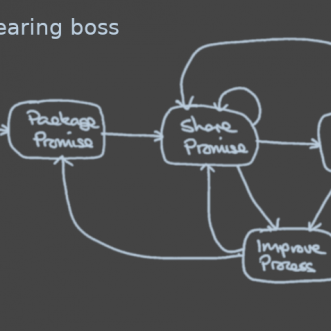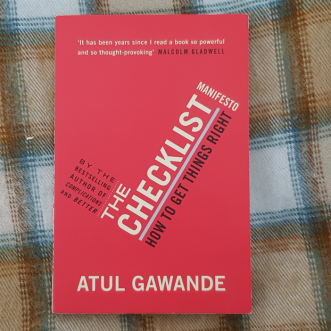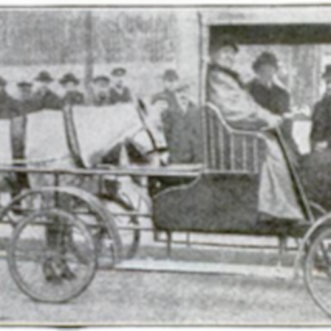
Another country
The north is another country.
They do things differently there.
A week of walking, looking and being made to think.
Just what the doctor ordered.
And now I’m back.
Did you miss me?

The north is another country.
They do things differently there.
A week of walking, looking and being made to think.
Just what the doctor ordered.
And now I’m back.
Did you miss me?

We all make promises, all the time. And more often than we would like, we break them.
Life happens. The unexpected happens. Sometimes they were promises we should never have made. However painful, those breaks can be understood and accepted.
To make a promise you have no intention of even trying to keep is unforgivable.

“There were boisterously spiced empanadas, tamely flavoured empanadas, tightly crimped and crisp empanadas and loosely folded, sloppy empanadas. The standardised recipe couldn’t overrule the uniqueness of each cook, their personality, and experiences, which they inevitably infused into their cooking.”*
This is why you should never be afraid to produce an OurScore for your customer experience. Like a musical score, it looks prescriptive, but each and every performance of it will be unique.
This is also why you should never automate more than the admin parts of it. Only humans can humanise an experience.

It’s a classic story of how many small businesses grow, and then shrink again.
As the founder, you do everything. You do the sales and marketing to get clients, you enrol them, and you deliver the service to them once they’re on board. Gradually you refine your hand-crafted offer into a customer experience that is uniquely yours. That most of your clients really love. That you become known for, even though you aren’t the only person or business offering this service.
So you decide to scale up. You add other people – employees, or just as often, specialist freelancers – to help you with delivery. So you can service more clients.
Handing over means systemising the parts of the process other people can do for you, but you retain control of the parts that matter – where the process interfaces with clients. The heart of the customer experience. After all, you are the face of the business. People buy people, and that means you.
At first this is great. You can handle more clients than before, make more profit than before. So you take on more collaborators.
But all too soon, it becomes too much. Suddenly you are working harder than anyone else. You feel obliged to keep your collaborators fully occupied, but that means overloading the backbone – you.
You can’t take holidays, you can barely take weekends. And when you do snatch a break, either it gets interrupted by collaborators or clients, or you come back to extra work. Because nobody else can fulfill your role.
So back down you shrink. Not quite to the one-man band you started as, but to essentially a one-man band with specialist accompaniments, dealing with a limited number of lucky clients each year.
In principle, there is nothing wrong with this. Of course not. It’s your life, your business, you decide how you want to live it.
But if you dream of making a bigger impact, you might like to know there is another way. That doesn’t involve ‘going corporate’. That doesn’t mean building a machine, losing the personal feel of your business completely.
The choice isn’t between 3 people and 300. Between being a freelancer or being a tycoon. Between being human and being corporate.
It’s possible to systemise your personality, your values, your unique customer experience into a small business that can scale without losing its humanity. And without killing you in the process.
You just have to go about it in a different way.
By building your business as a system for making and keeping promises to the people you serve. A system run by and for humans, not machines. A system that enables everyone to be a Boss, so that any one of you can take a break when you need to.
Luckily for you, I’ve worked out how to do this over a year-long programme. My clients have reaped the rewards.
It’s called The Disappearing Boss.
And from September you’ll be able to do it yourself, as part of The Disappearing Bosses Club.
Discipline makes Daring possible.

Christmas, 2014. I was listening to The Reith Lectures on Radio 4.
As usual, I hadn’t taken much notice of who was behind what I was listening to (I didn’t find out who played my favourite ever dance record until 30 years later). Then the speaker said something that galvanised me.
“Discipline makes Daring possible”.
After that I had to follow up on it.
The lecture was the second of a series on “The Future of Medicine”. The speaker was Dr Atul Gawande and the episode title was “The Century of the System”.
It “tells the story of how a little-known hospital in Austria managed to develop a complex yet highly effective system for dealing with victims of drowning.” – specifically in freezing water. A system that could be triggered by the receptionist.
The story came from Gawande’s book, “The Checklist Manifesto“. I tracked down a copy, bought it and devoured it in one sitting.
I thoroughly recommend it. Not just because it shows how something as simple as a checklist can save millions of lives, also because it shows how resistant ‘professionals’ are to any kind of systemisation.
Which fed nicely into my fascination with finding that fine balance between systems and humans that makes for consistently rich and evolving customer experiences, as well as consistently rich and evolving employee experiences.
If discipline is what makes daring possible, how little of it can you get away with?
How much daring can it enable?
I don’t know.
But I’m still enjoying finding out.

The flip side of yesterday’s question – what if that step into the unknown works? What will Disappearing from my … Read More “What if it works?”

It’s a cliché that small businesses like me don’t like to ask for payment. That we somehow feel guilty about asking to be paid for the value we deliver – perhaps because we don’t altogether believe in that value ourselves.
The upshot is that either we invoice late, even erratically, or we seek to make the payment aspect invisible to the client, by using a service like GoCardless for example.
But what if there was a better way?
What if you could make payment truly part of the customer experience? In the way it often is for retail.
What if you could use every invoice to remind your client of how far they’ve come on the journey they enrolled on with you? Of how much they’ve achieved as a result of working with you? Of all the ideas and actions you’ve generated together?
To enable them to relive all the reasons they chose you, and the benefits they’ve gained as a result?
That might be a far from unpleasant experience for the client.
Of course to keep invoicing, you’d have to keep delivering value.
But that’s not a bad discipline to put yourself under.
After all, Discipline makes Daring possible.

Harmony isn’t only everyone singing or playing the same tune at the same time, powerful as that kind of harmony is.
Harmony can also be an active fitting together of differences so that together they sound more than the sum of the parts.
The first kind of harmony is easy to take part in. Just sing or play along wth everyone else.
The second takes more effort, to hear what’s going on around you, keep time and co-ordinate your own music making accordingly. An active fitting together of differences to create a much richer sound experience.
You can teach people to make the first kind of harmony just by getting them to practice.
For the second, you need a score.
Which means you have to become a composer, not an instructor.
Discipline makes Daring possible
HT to Bettany Hughes for prompting this one.

Clothing brand Unfolded only makes what they have already sold.
More than that, they only make what they know people will buy. They find out what to make by getting their customers to help with the design process every couple of months.
A very simple way to save waste of all kinds.
Where could you put the cart before the horse in your business?
Discipline makes Daring possible.

I don’t know about you, but I’ve found it really hard to sleep over the last few nights of hot weather, and even harder to think during the day.
So this week, I’m going to be catching up on sleep and on food for thought, so I can better keep my promise to you with more interesting stuff than I have done lately.
I can’t wait.